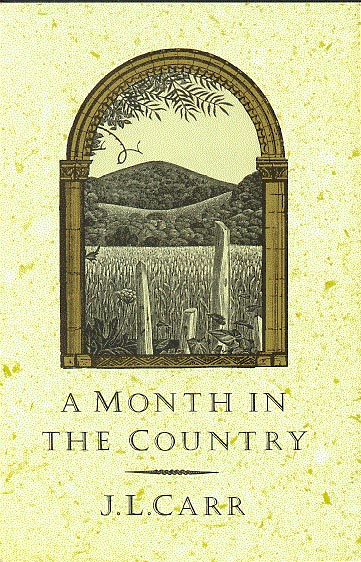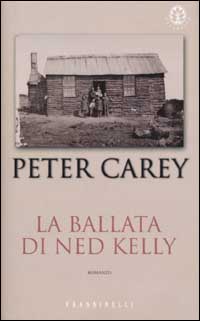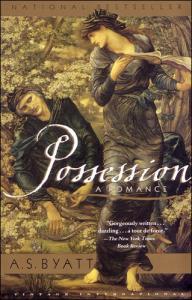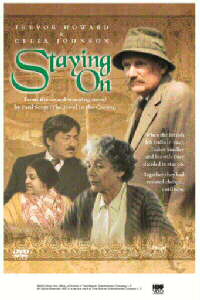Ellen and Jim Have a Blog, Too
We are two part-time academics. Ellen teaches in the English department and Jim in the IT program at George Mason University.


The MLA: Bookered Books & the Prize Culture · 9 January 06
My dear Marianne,
I almost missed what turned out to be the best session I went to.
On Thursday I was emotionally exhausted by the end of the day, and then it took me a full hour and one half to get home to Alexandria by the Metro. A yellow train had stalled near the Pentagon and no yellow trains could get through to DC. The crowd began to thicken on the platform where I was waiting, and the board said there had been no yellow train for over half an hour and none was due. I didn’t know what to do, but then thought to phone Edward and he suggested I take a green train in the wrong direction, get off at a stop he remembered which connected to a blue train, and then take this blue train back to Alexandria. While I managed that, the blue trains were themselves delayed because they run on the same line as the yellows. (Marianne I hope you know the trains are not themselves colored this way; it’s a shorthand way for referring to a particular line and trajectory.) When I got home, I said "no more."
But the next morning I was looking at the book with the sessions listed and said to myself, what a shame to miss this day as I don’t know when I’ll be able to go to such a conference again. I often love reading the Booker Prize type book, and have taught some several times (e.g, J. L. Carr’s A Month in the Country), and there was "Literary Prestige in the Global Marketplace: Theorizing the Man Booker Prize" about to begin in the Embassy Room at the Marriott.
J. L. Carr, A Month in the Country, 1980
I began to fret, and about 5 to 10 am, Edward turned to me and said I could drive you to the hotel in less than 15 minutes and the Booker Prize session starts at 10:15 am. I couldn’t resist the last day after all.
I didn’t quite make it, and ran through the hotel to get to the room breathless at 10:20 but in time and then stayed for another session on Wharton and French culture. The linking ironic theme of the 4 papers on the Booker prize globally considered was the proliferating prize culture in literature (and it’s moving into the arts). They examined its ambivalent effects on the literature and connections to perceived national identity and the power of London and Paris as publishing marketplaces.
The first two papers were given by Prof Ribeiro ("Book, Booker, Bookest: or, How, to Succeed in the Literary Prize Business") and Prof English ("More Bookers than Books"). They argued that the prize culture does books good. It sells them. It promotes them. When attached to works of literary merit, it helps sustain a badly hurt higher culture and good intelligent art. Each prize also makes visible or creates a terrain which people then write books to be part of; as a writer wins a given book he is positioned in the conversations of newspapers and films (numerous Booker Prize books have been made into films). The reality is filthy lucre is important; the reality is a book is not only itself a social act, but an object made possible by someone being in a certain position and writing to fill a perceived wanted commodity. All this was invisible and tenuous and hard to see before the prize culture.
Thus the Booker Prize is a very good thing even if it’s slanted, corrupt, run by small interlocking coteries, and functions as what throws those authors who don’t regularly get some prize into oblivion. This is what happened to Suzy McKee Charnas: all that keeps her name alive more widely is her The Vampire Tapestry: it won a prestigious gothic literature prize.
They also suggested the books feed into global internationalism
when they get the global prizes (Nobel, Pegasus) and give those authors much social capital and prestige they can use (for good if they want). On the down side, though, what continues to happen is London and Paris (with its Prix Goncourt which the originator of the Booker said he was thinking of) remain having the hegemony. If you want a reputation and are in the commonwealth you must go to London or win one of the British prizes. Dublin apparently tries to compete with a prize but isn’t making it. So Australian, New Zealander, Canadian, and many English-speaking reading writers must win in the English pond to make a continuing wide reputation in literary marketplaces.
Peter Carey, The True History of the Kelly Gang, 2001 (in Italian translation)
They didn’t say this but I’ll add perhaps the way to promote and sell good books with intelligent thought is to make visible the hitherto invisible networking. Turn it into scandal and entertainment. Make it a horse race: who will win. As you known in England people bet on anything, so they nowadays bet on the Booker too. Make it exciting with a dinner and each year changing stars (not just scholars, but semi-famous people drawn from 5 different areas of literary/art life including journalism become judges).
To the specifics: the first paper was given by Prof. Ribeiro, who I had seen before & met; he’s a member of the Burney team turning out Burney books at McGill; his area is Charles Burney. I’ve heard him speak, but never give a paper. He is witty and enjoys telling anecdotes. He addressed the question, Why has the Booker done what no prize did before—so that it’s being imitated (not least by the Feminist Orange prize which is having a more modest but real success in the same way)? Prof. Ribeiro divided their strategy up into media activities, a particular kind of or choice of book (one having centrally to do with and elegaic over [often mythologized upper class] English identity), and strong attention to commerce (newspaper excitment, parties, dinners, staging publicly each phase of choosing, advertising). By contrast, the Prix Goncourt which does sell books and has enormous prestige does not do any of this but relies on French cultural and caste pride.
I don’t know if you are aware Marianne of the way the Prix Goncourt operates. It was first founded in the 1920s, and those who are chosen to be judges, are judges for life. Imagine the networking and pressure on these few individuals. (Each year the Booker changes its five judges.) Thus the Prix Goncourt clique is like the Venetian government in the 18th century or the US supreme court does this. On prize-giving night these judges eat a very elegant dinner in a centrally high culture place they have been going to all century where they have carved silver knives with the names of all the judges thus far on them. An older upper class almost ancien régime ambiance is imitated.
Prof Ribeiro said the British atmosphere drummed up is more like that of the Oscars, with high stakes (the big money), and it’s treated playfully in the British press. Tongue-in-cheek sarcasms are part of the tone often taken. By contrast, the US prizes get bogged down in solemnity with a more MLA type atmosphere surrounding the prize-giving. It’s a matter of style in a particular cultural milieu of London too, and homogeneity among differentiated classes when it comes to English identity.
Professor English said the prizes extend literary territory for all, help define relationships among groups within and across one another. He described the literary marketplace before the prize culture and afterwards, and told how the man who originated it (Mashler?) came up with the idea, sold it to the Booker group. He was less ironic and amusing than Prof Ribeiro, but also brought out what those who inveigh against the prizes point to as showing up what precisely it means to do. For example, the International Man Booker which aims to join in global prize giving this past year gave its prize to a book whose English translation came from a French translation of a (I believe) Roumanian book. The author was someone networked into these milieus through French upper class and educated cliques. This brings out how the French language vies with the English in disseminating books—there are books not translated into English but rather French and through Paris publishers (and other French ones) advertised, and sold. He felt the prizes do not replicate one another in the way it’s sometimes claimed.
Porf English is defended the marketplace. On one level, yes, how else? Today in TLS there’s a long article about an exhibit about melancholy in Paris. How to read this article? Through English’s eyes we see that a group of people in Paris are asserting themselves in this favored circle; they have produced 3 books all in French. But on another, naturally. He’s a dean at the Univ of Pennsylvania—a very prestigious school, in its way more prestigious than the proper Ivy Leagues. There were more than a few quiet sneers among the panelists at poets: they must rely totally on prizes even to get published.
The other two papers dwelt on particular cultures and books. Prof Ho presented a paper on Peter Carey, an Australian writer who now lives in New York City, and has won the Booker twice, and been shortlisted once. She dwelt, however, on John Maggs, a book which won nothing, was overlooked. Fully in the Booker mode, it’s a rewrite of an older English classic, Dickens’s Great Expectations. Instead of dwelling on the young English gentleman; it makes us see the tale from the convict’s point of view. Carey, she argued, satirized not just the prize culture, but the typical content of Booker books to show up obsessions with and anxieties over Australian national identity, the use of literary culture to expose private lives, the uses of past private lives to make modern political agendas & much else. Myself I have yet to read Carey’s The True History of the Kelly Gang—which won the prize. It’s on my TBR pile.
Prof Ho is now writing a book on a Canadian author, Margaret Atwood, who has herself written about the difficulties of writing Canadian books for a fully Canadian setting without reaching out to a specfically English point of view: Canadian literature has yet to be regarded as significant as English by the outside world, and the author who ignores the international marketplace as shaped by London and New York culture does so at her peril, and possibly the cost of having a really successful remunerative respected career. Ho’s book will focus on Alias Grace (short-listed for the Booker) as central to Atwood’s project of creating a national historical cultural identity. This novel is set in 19th century Canada, imitates 19th century techniques—and A. S. Byatt’s Possession (which one the Booker too).
Margaret Atwood, Alias Grace, 1997
One element most Booker prize books share is at their core they examine (sometimes question) an idealized variant of English identity as promoted by the upper class and well-educated. This is one reason these books often are rewrites of earlier English classics. They imitated or use 19th century realistic modes, authors, events, books and appeal to readers who love to read 19th century English novels. They are more than updates since they often present a post-modern, highly sceptical and sophisticated point of view, often one which is politically progressive, and at any rate appears to at least in part present the viewpoint of Commonwealth countries.
The last paper was given by a young man, an assistant professor who thought of and organized the panel, Jason Mezey. He discussed the 2004 prize—which ones were short-listed, which one nearly won, Cloud Atlas and which did, The Line of Beauty. How things happened and why. Like Prof Ho, Prof Mezey was more adversely critical of the consequences of the Booker Prize book identity than either Ribeiro or English. Prof Mezey argued an opportunity was lost when the prize when to The Line of Beauty because it’s far more conventional, localized, realistic book entangled in English identity (once again). The Bookers had been going on and off (and more frequently on) to books with highly unconventional techniques, which moved into international themes, geologic, metaphysical, ones not so polished and not easy to read (not realistic).
Prof Mezey saw Cloud Atlas as a highly sophisticated modern epic, appropriate to an era where nation states are losing their sovereignty and control to global companies and their hold on money, politicians and their armies, and manipulations of desperate tribal societies. He said the Line was marketed as the first gay novel and sold on that—as well as its beauty, elegance, and genuine high literary qualities and intelligence. But he thought the real reason it was chosen was it would be a book that was in the tradition of realism, readability and exploring English identity (it takes place in the Thatcher decade).
So The Line of Beauty represents a return to a central Booker Prize type: what is meant by centering the prize on English identity is these books are often historical novels which imitate or use 19th century modes and authors and events and books and then place the story in a postcolonial posthistoricism context.
A. S. Byatt Possession, 1990
The talk afterwards was fun. They and others told of experiences in London with publishers and literary people—as well some Australian and New Zealand anecdotes. One man had gone to a BookerPrize dinner where he had apparently been made to feel he was messy, unkempt, and gauche in comparison to many others. A lot of upper class sprezzatura-posing going on I suppose. We also talked of how much money can be made on films, the high quality of some of these films, and again of the problems of writing as an Canadian, Australian or non-English national. This includes Irish people. Someone said that lately Dublin has been trying to vye with London.
Michael Ondaatje, then Antony Mingella (screenplay), The English Patient, 1992
Then lo and behold I noticed that the New Yorker recently had an article on the same subject: Lous Menand held forth on "literature’s global economy," and its debunking title, "All that glitters is not gold," gives something of the tone of his piece. He was reviewing English’s book on the Bookers and the prize culture in eneral (The Economy of Prestige) as well as Pascale Casanova’s The World Republic of Letters (translated from the French by M. B. DeBevoise). Menand joked that for a French writer Paris is "the metropole" of the world ( she is, after all, French." I asked the people at the MLA meeting for statistics on how French translations of works not in French compare with English translations of works not in English. I know English translations outnumber the French by leaps and bounds, but what about books "that count," books that get prizes, that people respect. I’ve found books originally written in languages other than French or English translated only into French and read them that way. They didn’t know.
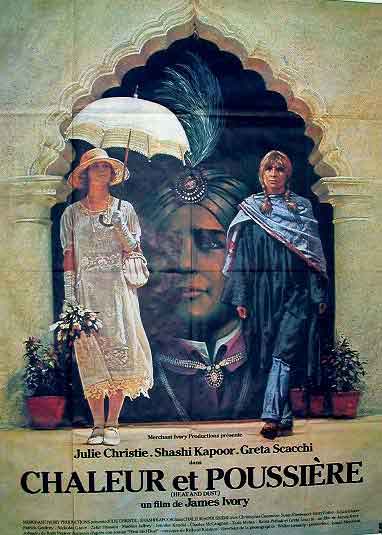
Ruth Prawer Jhabvala, Heat and Dust, 1987 (from Merchant Ivory film in French translation)
I sent the URL to WWTTA and a couple of other listservs and remarked on these that Menaud skirts over the scandal of how little the invisible translatora earn. While some of them nowadays do make a living, they make nothing in comparison with their importance in this prize system. And some make hardly anything at all. So the translation is at the heart of this system: Faulkner in French means something to the South American world; Didier (L’Écriture-Femme), says Woolf in French is what influenced the French feminists. Didier never mentions the name of the translator of Woolf into French. Has there only been one?
I also thought that Menand was nowhere sceptical enough about these assertions about globalism. Casanova argues books have always been in a global marketplace and have had to appeal to an international audience. Really? Globalism is the latest fashion.
Fran W on WWTTA made some intelligent comments in response to Menand’s article:
My feelings were a bit mixed when it came to the discussion of the relative merits of the books cited. I’ve noticed it’s become popular to bash The Bone People in particular in this context. Though it falls away to the end, I liked it and read it, not as a ‘Maori’ or ‘prize’ book, but soon after it came out on a N.Z. friend’s recommendation. Another N.Z. friend of the time hated it for some of the reasons advanced – like anything else, a question of taste. On the other hand, I’ve never been able to understand the fuss about Morrison. I’ve admittedly only tried a couple of her books, but couldn’t finish them, mainly because they seemed to veer perilously towards sentimental Kitsch.
As to this prize inflation, it’s got to the point with me where a prize sticker on a book is more a reading deterrent than an encouragement.
A thing that I’ve been wondering since you first brought this up is whether anybody went into the effects of TV lit programmes on the book sales. You have your Oprah phenomenon in the U.S. and in Germany, for example, there’s a very short, but influential, late night book programme, ‘Lesen’ (Reading) with writer and satirist, Elke Heidenreich, whose book recommendations translate into pure gold for the writers and publishers involved.
On the subject of translation, one thing I’ve noticed over the past few years is that there seems to be a greater affinity between some cultures and languages that others. There seems to be much more Japanese literature readily available in French than in German, for example, and I’ve sometimes enjoyed a Japanese author more in French than in English translation: Mishima comes to mind here. When it comes to Russian literature, I often prefer a German over an English translation. Perhaps I just notice the bumps in translation more in my own first language:)
To this I replied, that it’s no coincidence that every time The Bone People is debunked someone mentions how it was published by a tiny feminist press. But that I was chuffed to see the debunking of Morison’s Beloved. I may have told you—and if Caroline reads this she will remember—- how she and I concocted a paper on Beloved for her for her final year in English. She may not remember the thesis I made for us but it was along the lines suggested by Menaud’s comment about how to concoct a Booker. I think (not sure) she and I got an A or A+, the teacher excused her from the final, said the paper was "very funny" and "scathing!" and then told her to burn it. She might be accused of racism.
I qualified my scepticism about globalism. The idea that all works of art by the end of the 19th century (and here I’ll put in an idea not in Menand’s article) where there had been such a diaspora of people’s, and interactions and connections through colonalism, and easy movement, is fruitful: we had had a thread on the 19th century list, Victorian, about what nationality should we use to discuss Henry James’s work: American, English, or cosmopolitan. I’d say French influences were superstrong.
I quote myself:
in this scenario today works written from the "margins" (to pick up the conventional metaphor) of the empire are not be seen as somehow essentially different from works written from the center, and you can compare them readily without first imposing strictures and standards of imagined nationalisms. We are all human beings together.
Paul Scott Staying On, 1977
I agreed about some languages moving more readily into others and some authors have affinities for other cultures. Jane moves into French as if she wrote it. Italian is a harder thing and really the books are transformed by the Italian language’s own world view as well as structure. Trollope too just is not translated into Italian or translates badly. He does very well in Russia and in Dutch; some of the books too go well in French (the heroine’s texts).
There was nothing about TV in this session except as it’s used to bolster and give attention to the Booker and its progeny. There were sessions at the MLA on TV, but the problem for me would have been that partly I’ve found when I go to these more pop sessions (like the one on adult misuses of child’s lit) the people who speak are _for_trashing, for the pop crap. They defend it. It seems almost impossible to try to make a career on material you genuinely critique. It’s the career aspect of the person at the panel that makes for this lack of critical acumen. They are the people who were glad to get rid of the canon, survey courses and the like.
So after all there was only so many hours in a day and after 4 sessions my head gets tired.
Well, Marianne, I’m as prolix and convoluted as one of Richardson’s characters: I send letters inside letters. My excuse is this subject is fascinating to me. We are here talking about the realities of books. To talk of them as sheerly moral statements as if they existed in an ivory tower is to misunderstand what they are: commodities. It’s not to begin to see how they function at a particular junction in a particuular time and place and because they are known to be written by a particular author who has been positioned publicly in a particular way.
And I had such a good time. A rare treat for me these 4 days at the MLA. Like a holiday. I had enough personal contact to be pleasant—at least most of the time, and was told the occasional revealing semi-personal story on the bus shuttle back and forth. I met a few friends from the small 18th century Eastern Region group at the book stalls too. Of course I wasn’t doing anything that could be called careerist, or when I almost got close I got a terrible stomach ache at the very thought. I wasn’t interviewing, being interviewed, or trying to sell or push anything to anyone (or attempting to displace anyone either) at all.
Adieu, my dear, for a few days.
Elinor
--
Posted by: Ellen
* * *
Comment
- From Victoria:
As I remember, the hero of J. G. Farrell’s historical novel, The Siege of Krishnapur, is a doctor who pioneers a radical treatment for cholera over much opposition. Again, if I remember correctly, instead of putting mustard poultices on patients, he makes them take in fluids—and thus saves their lives.
I do not know if hydrating as opposed to dehydrating cholera victims started in India, but there is a note at the end of the book in which Farrell mentions his sources. Certainly his treatment fits in with the theme of the book, which is that the Mutiny led some Englishmen to rethink and in some cases jettison their beliefs …
The Siege of Krishnapur won the Booker Prize….
Frances
— Chava Jan 16, 10:55am #
commenting closed for this article

